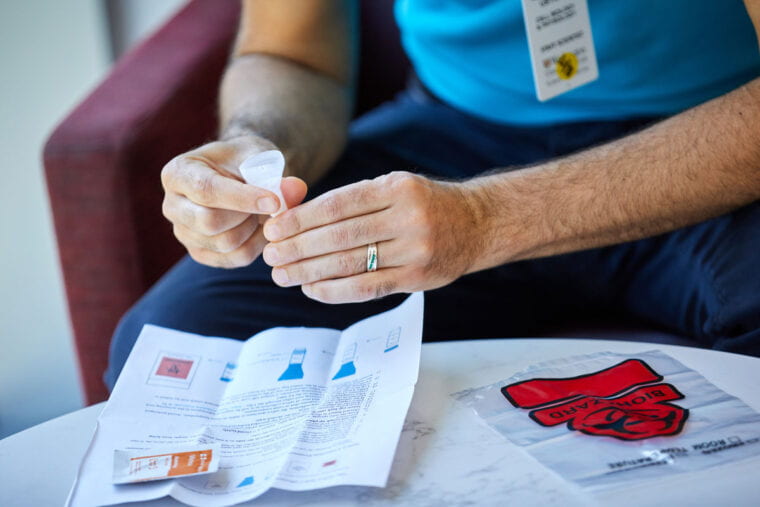Researchers at Washington University School of Medicine in St. Louis have received a two-year $5 million grant to offer 50,000 saliva tests for the SARS-CoV-2 virus to students, teachers and staff in the six special education schools operated by the Special School District of St. Louis County (SSD).
The pandemic has disproportionately impacted students with special needs, especially those with intellectual and developmental disabilities, in part because they rely on daily structure and in-person support for learning and social growth. The researchers also will assess educational disparities affecting families whose children have intellectual, emotional and developmental disabilities. Due to underlying medical conditions experienced by many such students, this population of students is at a higher risk for developing COVID-19 and severe complications of the virus.
The grant will serve about 750 families in the district who have children in kindergarten through the 12th grade. The saliva tests will be voluntary and offered weekly to teachers, staff and students over the next year, starting this fall.
“Our partnership with the Special School District strives to remove the obstacles related to testing and decrease the burden of COVID-19 for this vulnerable segment of the population,” said grant co-investigator Christina A. Gurnett, MD, PhD, the A. Ernest and Jane G. Stein Professor of Developmental Neurology and director of the Division of Pediatric and Developmental Neurology.
The funding stems from $500 million awarded by the National Institutes of Health (NIH) to 32 medical centers as part of the agency’s Rapid Acceleration of Diagnostics-Underserved Populations (RADx-UP) initiative to provide underserved communities with rapid testing for COVID-19. This award supplements the Washington University Intellectual and Developmental Disabilities Research Center (IDDRC), which aims to advance research in neurodevelopmental disorders and is funded by NIH’s Eunice Kennedy Shriver National Institute of Child Health and Human Development (NICHD).
“Remote school is difficult for most families, but particularly so for parents who have children with disabilities,” said Gurnett, who serves as neurologist-in-chief at St. Louis Children’s Hospital. “Parents, especially if they’re working and if they have other children, may not be able to provide full-time caregiving. Their children may have trouble interacting with computer screens, and their behavior may be negatively affected by feelings of confusion and isolation. Children with disabilities may also require ongoing assistance with basic skills such as eating or using the bathroom.”…
…John N. Constantino, MD, the Blanche F. Ittleson Professor of Psychiatry and Pediatrics and psychiatrist-in-chief at St. Louis Children’s Hospital, is a co-principal investigator. He and Gurnett co-direct the IDDRC, which is one of 15 research centers funded by the NICHD to advance understanding of conditions related to intellectual and developmental disabilities.
